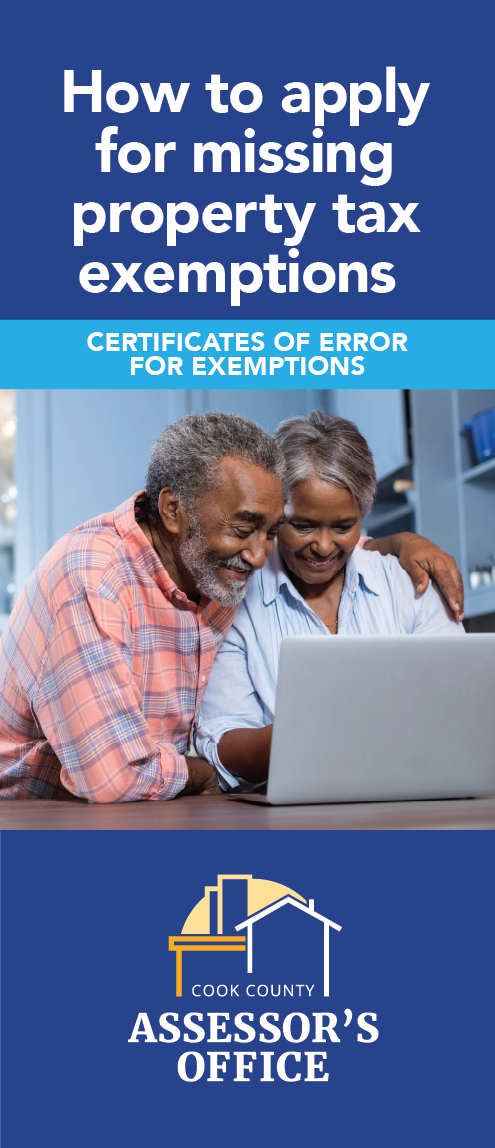Senior homeowners are eligible for this exemption if they are over 65 years of age and have a total household annual income of $65,000 or less in the 2023 calendar year. A "Senior Freeze" Exemption provides property tax savings by freezing the equalized assessed value (EAV) of an eligible property. This does not automatically freeze the amount of their tax bill, only the EAV remains at the fixed amount. Tax rates may change and thus alter a tax bill. Applicants must apply annually.
State legislation now considers homeowners enrolled in the following programs to be eligible for the "Senior Freeze." Proof of enrollment is required, please read the instructions under the Eligibility section to learn more.
- Aid to the Aged, Blind or Disabled (AABD) Program
- Supplemental Nutrition Assistance Program (SNAP)
- Low Income Home Energy Assistance Program (LIHEAP)
- The Benefit Access Program
- Senior Citizens Real Estate Tax Deferral Program
Automatic Renewal: No, this exemption must be filed annually.
Due Date: The normal filing period has ended. Homeowners can now apply for a 2024 Certificate of Error.
Did you file online for your senior freeze exemption?
Log in to view your application status.
How can a homeowner see which exemptions were applied to their home last year?
Check the Property Details, then review the Exemption History and Status section.
📌 Reminder: Exemptions appear on your second installment tax bill issued in the summer. To learn more about how the property tax system works, click here.


